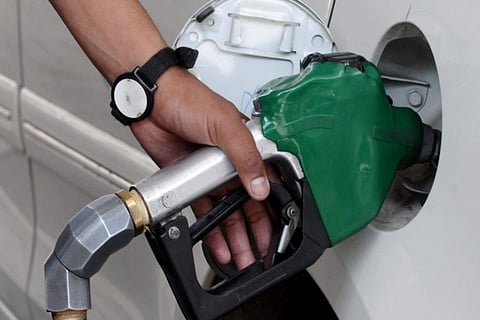

Karnataka residents are bracing for a significant financial squeeze as the state government implements a fresh round of price hikes, with diesel becoming the latest commodity to turn costlier. A 3% increase in the sales tax on diesel, effective April 1, has added Rs 2 per litre to fuel costs, raising the state’s Sales Tax (KST) on diesel from 18.4% to 21.17%.
Currently, diesel is priced at Rs 88.99 per litre in Karnataka, while petrol costs Rs 102.92 per litre. The Akhila Karnataka Petroleum Dealers Association estimates that the new tax will result in a price hike of approximately Rs 2 per litre, pushing the cost to Rs 91.02.
A government notification highlighted that Karnataka’s diesel prices remain relatively lower than neighbouring states: Rs 94.42 in Hosur (Tamil Nadu), Rs 95.66 in Kasaragod (Kerala), Rs 97.35 in Anantapur (Andhra Pradesh), Rs 95.70 in Hyderabad (Telangana)
This follows last year’s Rs 3.02 per litre increase in diesel and Rs 3 hike in petrol after the government raised fuel taxes.
In addition to the diesel price hike, the Karnataka Milk Federation (KMF) has raised the prices of Nandini milk and curd by Rs 4 per litre across all variants. Toned milk will now cost Rs 46 per litre, up from Rs 42, while premium variants like Shubham will see an increase to Rs 52 per litre. Curd prices have also risen from Rs 50 to Rs 54 per litre. The KMF cited rising production costs as the reason behind the revision.
Nandini milk still cheapest, Karnataka govt says in ads after backlash
Electricity bills are also set to increase, despite a minor reduction in energy charges. The Karnataka Electricity Regulatory Commission (KERC) has lowered energy costs by 10 paise per unit but raised fixed charges by Rs 25 for the fiscal year 2025-26, with further hikes planned in subsequent years. Consumers will see the revised rates reflected in their May bills.
Motorists will face higher toll fees as the National Highways Authority of India (NHAI) implements its annual revision across over 60 toll plazas in Karnataka. The increase, linked to the Wholesale Price Index (WPI), varies by location but starts at a minimum of Rs 5. Key routes affected include the Bengaluru-Mysuru highway and the toll plaza near Kempegowda International Airport.
Meanwhile, Bengaluru residents will now have to pay a solid waste management (SWM) user fee, introduced by the Bruhat Bengaluru Mahanagara Palike (BBMP). The charges, based on property size, aim to generate Rs 685 crore in revenue. Bulk waste generators failing to process waste onsite will incur an additional Rs 12 per kg, while those adopting composting methods will receive a Rs 3 per kg rebate.
Public transport
Public transport users in Bengaluru have been grappling with rising fares since February, as both Namma Metro and BMTC buses implemented significant price hikes.
One of the most notable increases came from Namma Metro, where the Bengaluru Metro Rail Corporation Ltd (BMRCL) raised ticket prices in February. The maximum fare surged from Rs 60 to Rs 90, while the minimum balance required on smart cards doubled from Rs 50 to Rs 90.
Similarly, BMTC bus fares saw a 15% hike in January, affecting daily commuters, including students and office-goers. The cost of a daily pass rose from Rs 70 to Rs 80, and the monthly pass saw an increase from Rs 1,050 to Rs 1,200.
Karnataka has also remained the most expensive state in south India for alcohol, with multiple price hikes over the past two years driven by increased state taxes and levies. In addition to transport and alcohol, higher education in Bengaluru has become costlier, with college fees for professional courses rising by 10%.